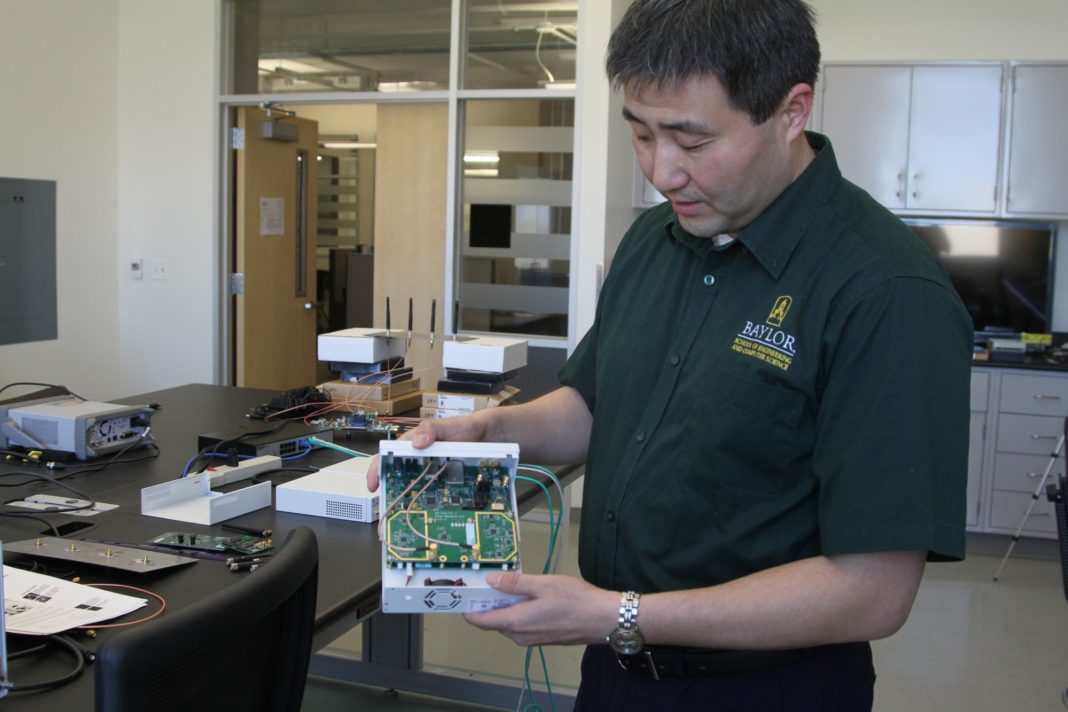Plans for smart houses in the future are slowly becoming more and more plausible. A house that does all the manual labor for the occupants, where dinner is ready on the kitchen table and all the amenities in a house are included in these plans. Thanks to Baylor University’s School of Electrical and Computer Engineering and deep learning research, a future with smart houses is getting closer.
copyright by baylorlariat.com
 Listed among the research opportunities in the School of Electrical and Computer Engineering is deep learning. This research is helping Artificial Intelligence (AI) to develop into what is presented in science fiction novels and television shows.
Listed among the research opportunities in the School of Electrical and Computer Engineering is deep learning. This research is helping Artificial Intelligence (AI) to develop into what is presented in science fiction novels and television shows.
Dr. Liang Dong , an associate professor of electrical and computer engineering, is leading this research. Dong has been with deep learning for about three years, but only brought this research into Baylor two years ago. The research is being funded not only by Baylor, but by Intel and a prospective new funder, the United States’ Department of Defense (DOD).
Intel is interested in the AI research going on in Dong’s deep learning research, while the DOD is interested in applying Deep Learning in combat.
“The computer teaches itself,” Dong said. “Deep learning is more to mimic a human brain.”
Through the use of algorithms and data, computers are able to compare results against many other previous studies. So far, the deep learning project is being tailored for the specific use of analyzing medical images like from positron emission tomography (PET) scans and computed tomography (CT) scans in hospitals. This would help to more accurately catch the development of cancer and other diseases. The research — conducted at the Baylor Research and Innovation Collaborative (BRIC) — is essentially split up into two categories.
The theoretical research is composed of distributed deep learning and energy-efficient deep learning. Distributed deep learning deals with investigating how to use several local machines to compute different parts of the main neural network. It solves the problem of the large amount of time it takes to train a deep neural network in a single machine. Energy-efficient deep learning focuses on the problem of being able to provide a constant source of energy for necessary continuous projects. […]
read more – copyright by baylorlariat.com
Thank you for reading this post, don't forget to subscribe to our AI NAVIGATOR!


Plans for smart houses in the future are slowly becoming more and more plausible. A house that does all the manual labor for the occupants, where dinner is ready on the kitchen table and all the amenities in a house are included in these plans. Thanks to Baylor University’s School of Electrical and Computer Engineering and deep learning research, a future with smart houses is getting closer.
copyright by baylorlariat.com
Dr. Liang Dong , an associate professor of electrical and computer engineering, is leading this research. Dong has been with deep learning for about three years, but only brought this research into Baylor two years ago. The research is being funded not only by Baylor, but by Intel and a prospective new funder, the United States’ Department of Defense (DOD).
Intel is interested in the AI research going on in Dong’s deep learning research, while the DOD is interested in applying Deep Learning in combat.
“The computer teaches itself,” Dong said. “Deep learning is more to mimic a human brain.”
Through the use of algorithms and data, computers are able to compare results against many other previous studies. So far, the deep learning project is being tailored for the specific use of analyzing medical images like from positron emission tomography (PET) scans and computed tomography (CT) scans in hospitals. This would help to more accurately catch the development of cancer and other diseases. The research — conducted at the Baylor Research and Innovation Collaborative (BRIC) — is essentially split up into two categories.
The theoretical research is composed of distributed deep learning and energy-efficient deep learning. Distributed deep learning deals with investigating how to use several local machines to compute different parts of the main neural network. It solves the problem of the large amount of time it takes to train a deep neural network in a single machine. Energy-efficient deep learning focuses on the problem of being able to provide a constant source of energy for necessary continuous projects. […]
read more – copyright by baylorlariat.com
Thank you for reading this post, don't forget to subscribe to our AI NAVIGATOR!
Share this: